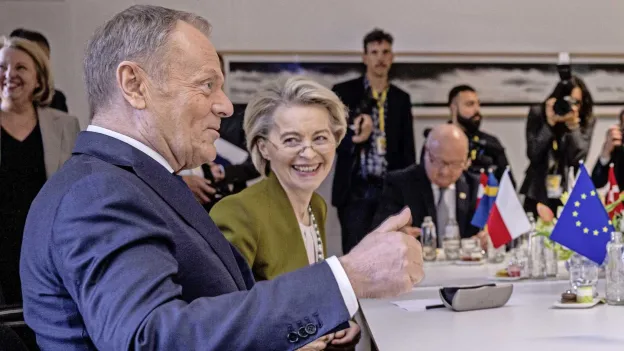
Polish Paradox: New President Karol Nawrocki's Eurosceptic Stance Challenges Brussels

brussels - Karol Nawrocki's victory in the Polish presidential elections raises concerns about Poland's future relationship with the EU under his eurosceptic leadership. How will this impact Brussels and the broader European landscape?
Polish Paradox: New President's Eurosceptic Stance
The election of Karol Nawrocki as the new Polish president has sparked uncertainty about the country's future ties with the EU, given his eurosceptic stance. Nawrocki's win contrasts with the previous pro-European leadership of Donald Tusk, causing apprehension in Brussels and beyond.
History of EU Funding and Political Landscape
Warsaw had been a significant recipient of EU funds, particularly under Donald Tusk's leadership, which aimed to strengthen ties between Poland and the EU. However, the recent shift towards a more eurosceptic president in Nawrocki raises questions about the country's direction.
Challenges and Euroscepticism in Poland
With Nawrocki's victory, concerns arise regarding the potential obstruction of Tusk's reform agenda by the new president, indicating a possible strain in Poland-EU relations. The divide between urban and rural voters, as seen in past elections, reflects the broader political landscape in Poland.
Impact on EU Relations and Future Prospects
The eurosceptic wave in Poland aligns with similar trends in other former Soviet satellite states, pointing to underlying discontent despite economic growth. The rise of conservative-nationalist parties and opposition to liberal democratic values challenge the EU's vision for member states.
As Brussels navigates these shifts, the implications of Nawrocki's presidency on EU dynamics and alliances, notably with countries like Hungary and Slovakia, come into focus. The evolving political landscape in Central and Eastern Europe presents a complex scenario for the EU's unity and values.


Leave a comment